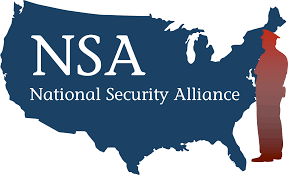
Explore the realities of being a security guard
A Day in the Life of a Security Guard: the Pros, Cons, and Realities of the Job
Randi Sherman
5- Minute Read
Trained security guards are always in demand. Guards are needed in almost every industry sector, and few other careers offer the same flexibility and diversity. You could be guarding a construction site, a movie set, working an event, patrolling a residential building, or providing security at a retail store. It’s not always glamorous, but if you work well on your own and thrive working with the public, guard work might be the challenge you are looking for.
Whether you are thinking about a part-time security guard job to supplement your income or considering a full-time career in security, you might wonder if it’s for you. Today’s article will describe a day in a security guard’s life and outline the job’s high and low points.
What Does a Security Guard Do?
Security guards work in many environments and capacities to protect a client’s property and people. Duties may include patrols and surveillance, monitoring security systems, controlling access, enforcing rules, and responding to security incidents.
Ultimately, your duties will depend on the environment and type of security you are hired to perform.
Guard work can be indoors or outdoors. You could be at a shopping mall, a construction site, an office building, or a sports arena. Some guards have specialized skills and may be licensed to carry firearms or have undergone conflict resolution training.
While special training isn’t always mandatory, the more skills you have, the more valuable you are to employers, which may also translate to higher pay.
A Day in the Life of a Security Guard
While guard jobs and duties can vary significantly from client to client, there are some commonalities.
Firstly, security guards work in shifts. Many companies require 24-hour security, and if that’s the case, you may occasionally be on nights or be required to rotate shifts with your coworkers.
Though you are allowed to take breaks, if you work alone on a night shift, you may be unable to leave your post. Overtime is also possible, as is working holidays and weekends.
Guards often work solo, meaning they must be self-directed. Documentation is an essential aspect of the job, as is communicating with other stakeholders (coworkers, supervisors, and other people on the job site) and knowing what to do in an emergency.
During the shift, the guard will patrol and surveil the site, respond to incidents, log activities, and submit reports as required. Some days will be uneventful and tedious, while others will bring unpredictable situations, emergencies, and confrontations. Guards must be prepared for any circumstance.
The Pros and Cons of Becoming a Security Guard
Like any job, being a security guard has pros and cons.
On the plus side:
• Job stability. There is always a high demand for security; you’ll never be out of a job unless you choose to be.
• Independence. Guards are expected to work autonomously. Nobody will be hanging over your shoulder telling you what to do.
• Valuable skills. Guards are skilled in emergency response, conflict resolution, surveillance monitoring, customer service, and more, all of which are critical skills on and off the job.
• Flexibility. Work part-time, full-time, or at night, according to your preference.
• Physical fitness. Being a guard keeps you moving—especially when patrolling.
• Pay and benefits. Many companies offer competitive wages and overtime pay; some may provide full-time employees with health benefits or retirement plans.
On the downside:
• Low pay, long hours. Wages can be low for entry-level or low-skill roles.
• Lack of career opportunities. Without additional training or certifications, there is little chance of advancement.
• Monotony. Long periods of inactivity or routine duties may become tedious.
• Difficult people. Confrontations, aggressive individuals, theft, vandalism, and enforcing rules in hostile environments can be incredibly stressful.
• Physical and mental strain. Long shifts and irregular hours can affect personal relationships and mental health.
• Danger. Potential for physical harm or dangerous situations when working in high-risk environments (i.e., armed security)
Key Skills Needed for Success
If you’re still with us, congratulations! Your desire to become a security guard overrides any adversities mentioned thus far. Mostly, however, we’ve been talking about the job. Let’s now focus on the person doing the job.
Here are a few attributes that most security professionals share.
• Good communicators. Guards must be able to communicate verbally and in writing as they will need to interact with people and fill out reports daily.
• Detail oriented. When viewing surveillance footage, patrolling, or speaking with people, guards must be highly perceptive and know how to respond appropriately.
• Problem-solving. Guards must respond to emergencies and resolve conflicts calmly and professionally.
• Physical fitness. Physical fitness enables guards to respond quickly to emergencies or incidents without undue stress or injury to their person.
• Patience and composure. Remaining calm in stressful or confrontational situations helps to diffuse conflict peacefully and avoids escalation.
Experienced guards make their jobs look easy. Their skills and demeanor don’t always come naturally; experience and training fill the gaps, ensuring a guard knows how to respond to any situation.
How to Get Started as a Security Guard
The process for becoming a guard varies between states. Some require licensing and various other certifications, while others don’t. Many security companies offer training and continuing education opportunities for their employees, giving guards a chance to upskill and raise their earning potential.
Of course, there’s nothing to prevent you from pursuing your own certifications and doing so may accelerate your job search. The ability to take initiative is a great attribute!
Some of the licenses and certifications that may apply include:
• Security guard license (guard card).
• CPR/first aid training.
• Conflict resolution training.
• Specialized firearms training for armed guards.
With your licenses and certificates in hand, speak to local security companies, browse online job boards, sign up with security staffing agencies, or strike up a conversation with an on-duty guard to get some tips and expand your network.
Final Thoughts
Is a security career in your future? Only you can say! Those who have chosen this path will tell you the challenges may be great, but the rewards are monumental. With the proper training and support, the potential is endless.
Browse our online security guard training courses today and kick-start your career.






